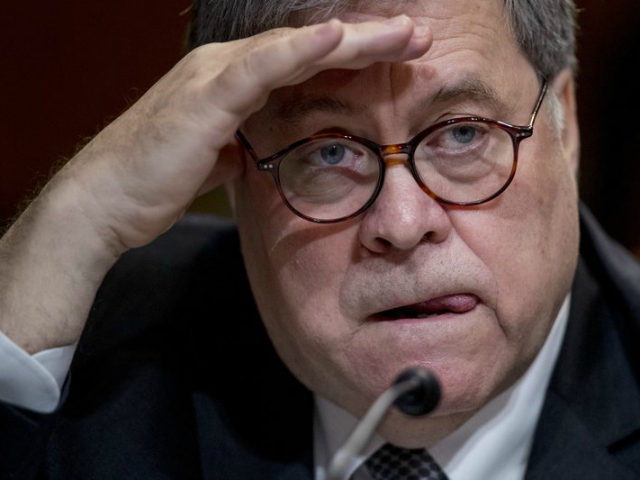Attorney General William Barr said in a recent interview that the answers he has gotten to why the government began spying on the Trump campaign in 2016 are “inadequate” and have raised more questions than before.
“I’ve been trying to get answers to questions and I found that a lot of the answers have been inadequate. And I’ve also found that some of the explanations I’ve gotten don’t hang together,” Barr told Fox News’s Bill Hemmer in an exclusive interview.
He said:
So in a sense, I have more questions today than I did when I first started. Some of what things don’t hang together, some of the explanations of what occurred. People have to find out what the government was doing during that period. If we’re worried about foreign influence, for the very same reason shouldn’t we be worried about whether government officials abused their power and put their thumb on the scale?
“I’m not saying that happened, but I’m saying that we have to look at that,” he said.
Barr announced last month during a House hearing that he was “reviewing the conduct” of the FBI’s investigation into the Trump campaign. The next day, he said at a Senate hearing that he believed “spying” did occur, but he wanted to review if there was proper predicate for that spying.
Barr also said during the Fox News interview that House Speaker Nancy Pelosi’s (D-CA) suggestion that he lied under oath is “laughable” and is an attempt to discredit him because she is concerned about the outcome of his review.
“It’s a laughable charge and I think it’s largely being made to try to discredit me partly because they may be concerned about the outcome of a review of what happened during the election,” Barr said.
“They may be trying to undermine my credibility, but obviously you can look at the face of my testimony and see on its face that there was nothing accurate about it,” he said about Pelosi’s claim.
Democrats have accused Barr of lying to Congress when he testified that he did not know what prompted reports that the special counsel team was frustrated with his March 24 letter announcing its principal conclusions.
Later, the House Judiciary Committee released a letter from special counsel Robert Mueller expressing concerns about how the public interpreted his letter and asked for more of the report to be released.
Barr later testified to the Senate Judiciary Committee that his letter was not meant to be a summary, but something to inform the public while he worked on redacting sensitive information and getting the full report released.

COMMENTS
Please let us know if you're having issues with commenting.